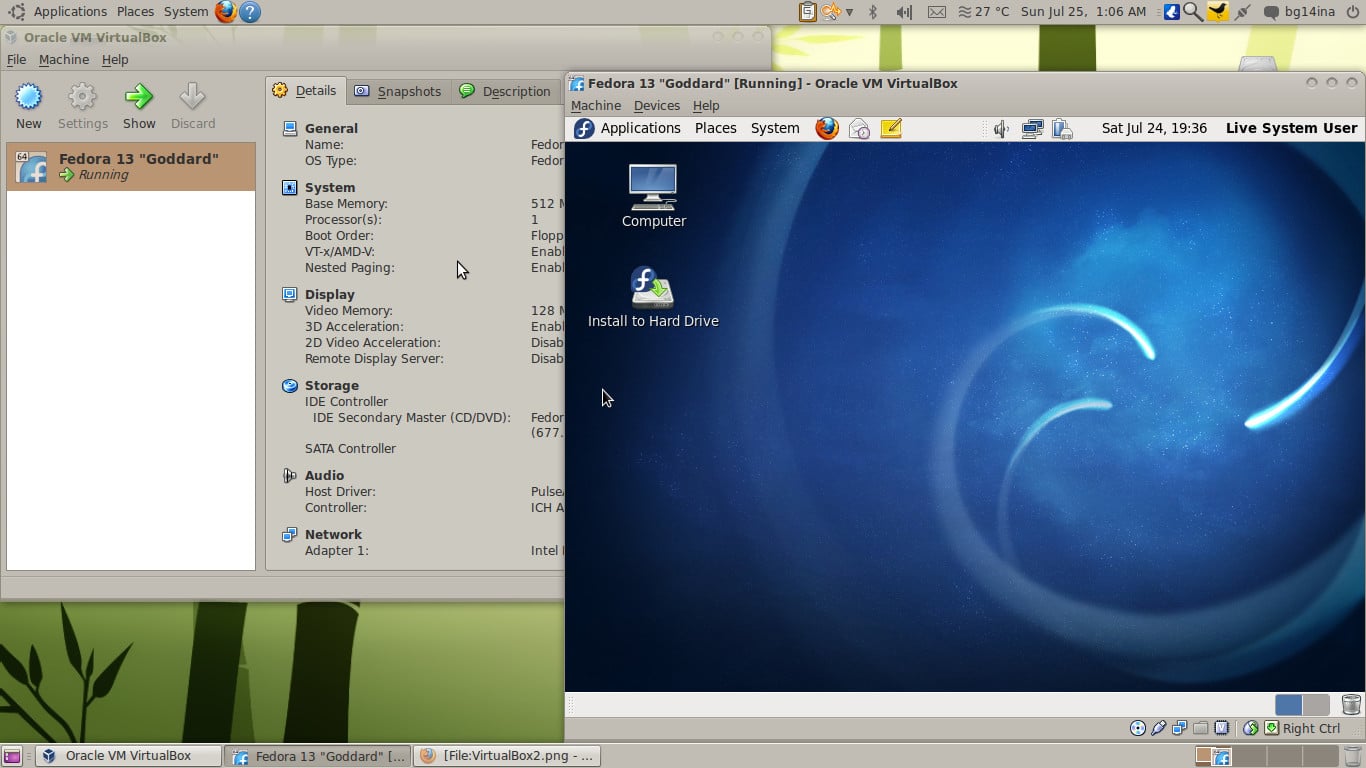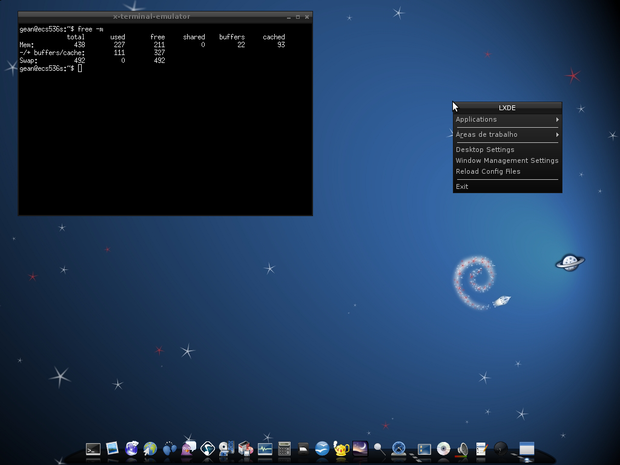

It remains to be seen, but I think VirtualBox will give BOTH quemu and VMWare a "run for the money" for non-production environments. VirtualBox is also not as mature as VMWare, but it is under rapid development and I think they are beginning to see the advantages of open source. Hat's off to VirtualBox for a simple, easy to use and understand GUI :) I know quemu has a gui interface, and I agree it is powerful, but Virtual Box is MUCH easier for users new to virtualization. VirtualBox wins out for home users new to virtualization looking for a open source solution with a reasonable gui interface. I agree 150% VirtualBox is NOT ready for what you are terming a "production environment", but I would disagree with the statement "VirtualBox simply has no reasonable niche." Considering one can get a better virtual machine without licensing issues out of QEMU, or the best virtual machine with many of the same licensing issues out of VMware, there isn't much place for VirtualBox. And then there is VirtualBox, which lacks features like 64-bit or SMP guest operating systems, misses some hardware support entirely, and has no 3D acceleration support, yet also only provides a subset of functionality freely.
#Virtualbox interface for qemu software#
A user who wants a free software solution can get the same from QEMU.

A performance-conscious user can get many more features and optimal performance from VMware. VirtualBox simply has no reasonable niche. Just because it works well for limited purposes doesn't mean its the better for more intensive tasks, or even the best for its own task. It is much slower than QEMU, and a mile behind VMware. On the other hand, virtualization is very important to businesses (which are the primary target for virtual machine software) and VirtualBox is not nearly fast enough for a production environment. Home users don't need fast virtualization.

Try using it in a production environment and see if it is still fast enough. Sounds like it includes everything I need. Does it run XP, and does it run it well? Yes. I am saying I notice no difference in speed.Īs far as features, VB has everything I need. It is so fast, I seriously can't tell the difference between running XP itself on its own hard drive, and running it under VB.
#Virtualbox interface for qemu windows#
I can't even tell of a speed difference between running Windows XP under VirtualBox, and running Ubuntu (of course having VirtualBox on top of Ubuntu). I am not sure where you're getting all this, but you should take into account how well VirtualBox has been working for many of us. VirtualBox contains a builtin iSCSI initiator making it possible to use iSCSI targets as virtual disks without the guest requiring support for iSCSI. With the use of Shared Folders, users can share directories on their host system with guest systems. This is a combination of the RDP server and USB support allowing users to make USB devices available to virtual machines running remotely. VirtualBox implements a virtual USB controller and supports passing through USB 1.1 and USB 2.0 devices to virtual machines. This component implements a complete RDP server on top of the virtual hardware and allows users to connect to a virtual machine remotely using any RDP compatible client. Note that this list may change over time as some of these features will eventually be made available with the open-source version as well. The following list shows the enterprise features that are only present in the closed-source edition. The open source version lacks some features but has to be compiled of tarballs the binaries are the proprietary version which is free to use. If you've installed it via the binary you got all features. I know the personal version is the free one. It's the only one I've tried, and it works great for me. Wow, what features aren't there in VirtualBox. Vmware has no open source version only the free vmwareplayer and server. Well the proprietary version is free to use for personal usage.


 0 kommentar(er)
0 kommentar(er)
